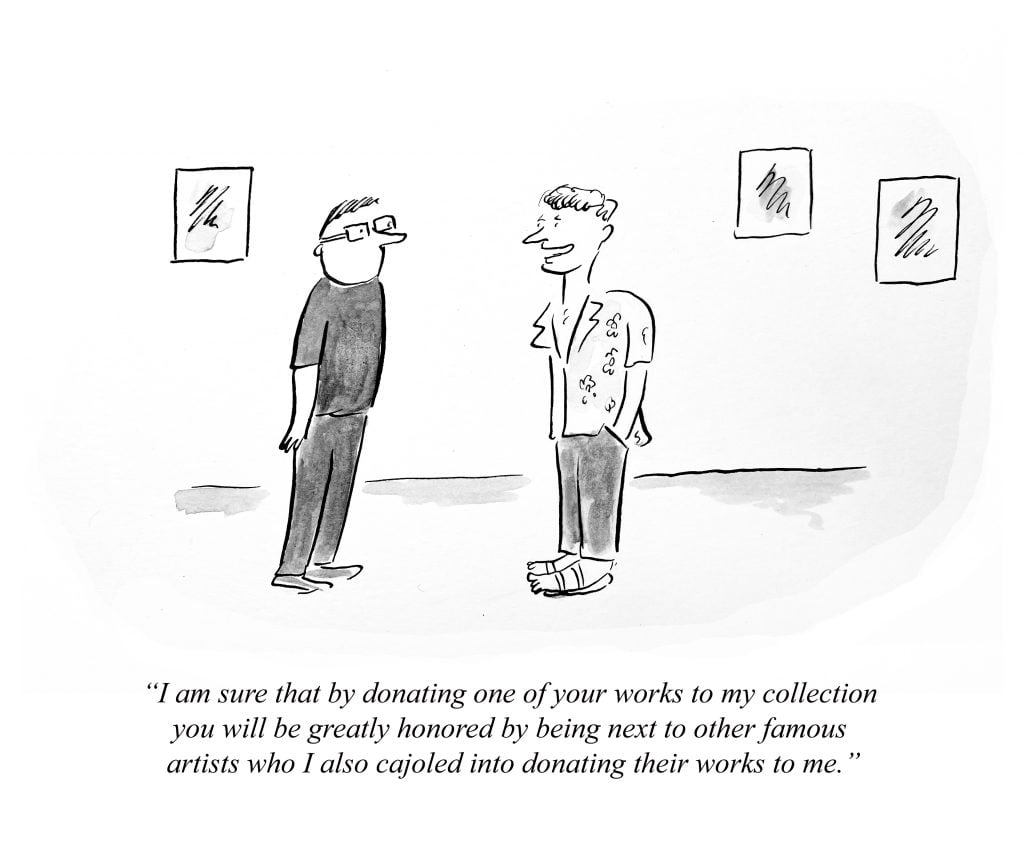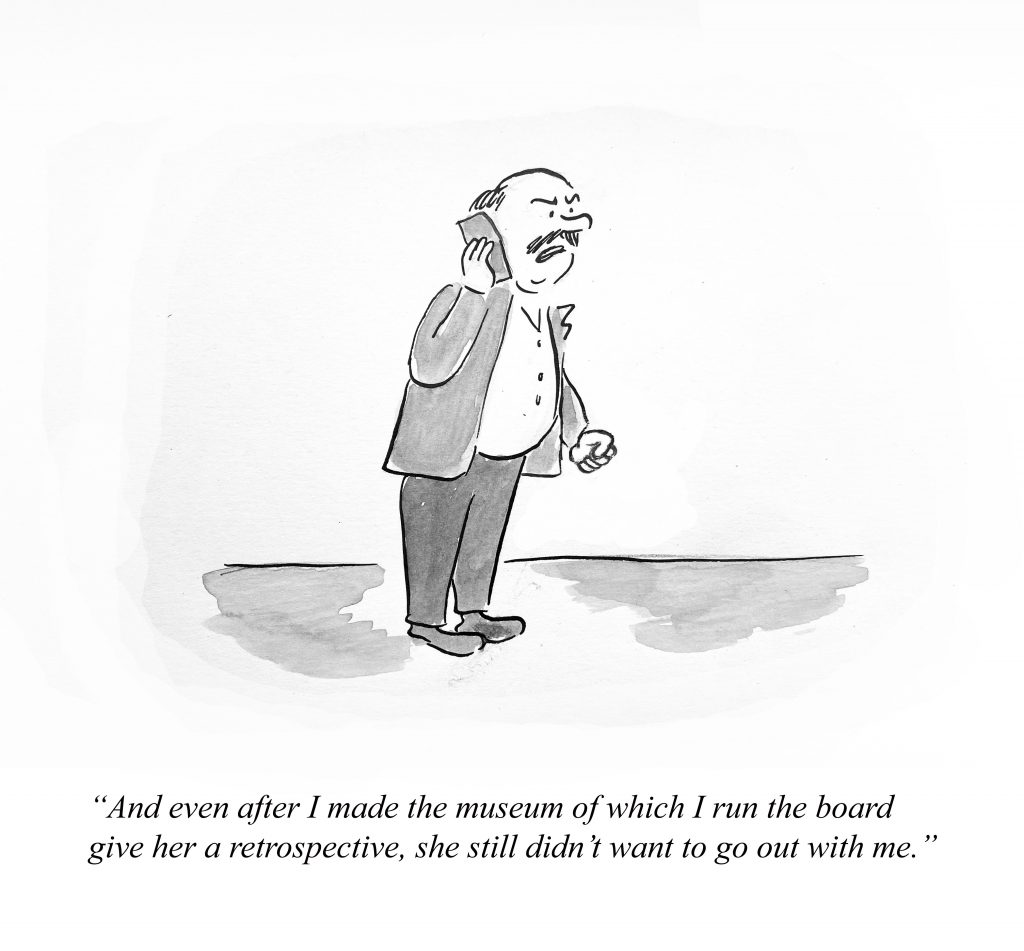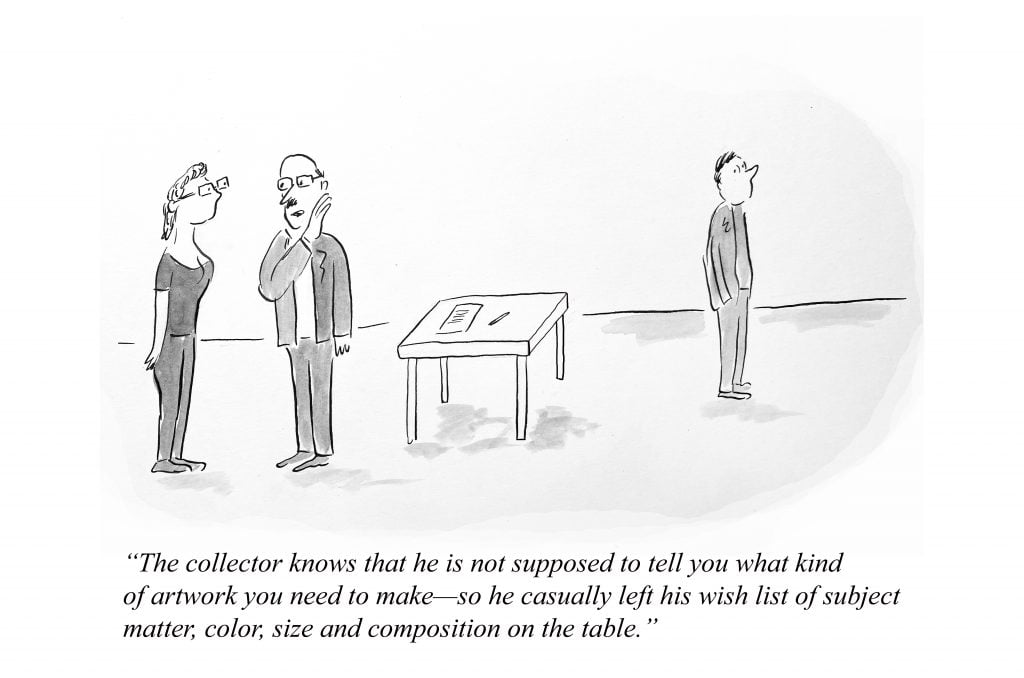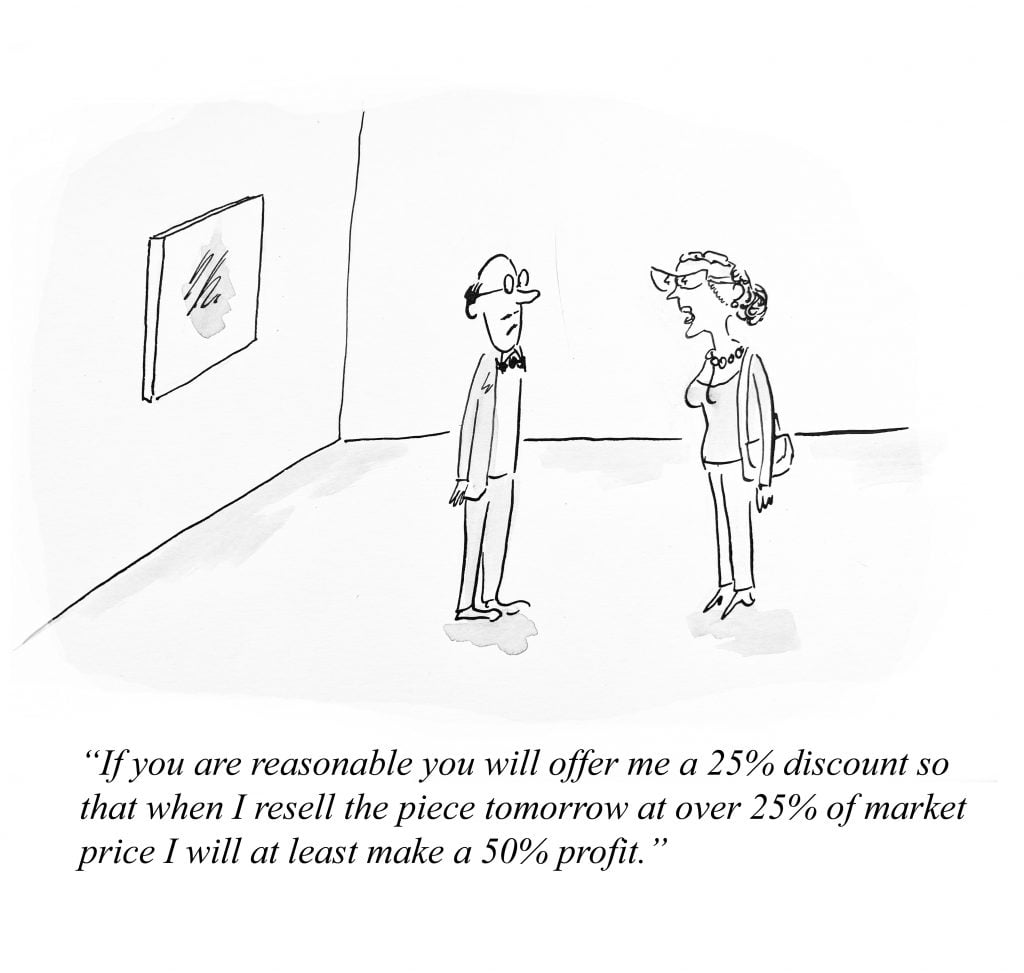Op-Ed
Collectors Have an Ethical Responsibility to Keep the Art Market Fair. Here Are 8 Key Rules to Hold Them Accountable
A group of like-minded collectors have drawn up a formal Code of Conduct for Contemporary Art Collectors.

A group of like-minded collectors have drawn up a formal Code of Conduct for Contemporary Art Collectors.

Piergiorgio Pepe, on behalf of Ethics of Collecting

Throughout the centuries, collectors have played a positive role in supporting artists and art ecosystems. At the same time, we have also all heard—and often personally witnessed—horror stories about unethical collectors.
You know the ones. The collector sitting on a museum board who hears about a still-to-be-announced exhibition, and—knowing that prices will skyrocket once the exhibition is announced—rushes to purchase affordable artworks by the artist. The collector who shows artworks from her collection in the same museum where she serves as a trustee. The mega-collector who buys out the studio of an emerging artist, exhibits them in his private museum, and feigns surprise when those works magically appear in an auction house with lofty estimates. Sadly, these cringe-inducing stories about collectors abound.
We are left wondering: why do such actions still happen in the art market, while in many other sectors they would be treated as “conflict of interest,” “insider trading,” or “abuse of power”? Why, as collectors, have we not yet fully come to accept that these behaviors are unfair towards other collectors, abusive towards artworkers, exploitative towards institutions, and disruptive to the market? Why is there such a gigantic blind spot among this well-educated, well-resourced, and presumably well-meaning group?
It is in response to this line of questioning, and to reaffirm that collectors have a critical role in artistic production and experimentation, that we decided to draw up a code of conduct for contemporary art collectors. It is a proactive voluntary set of standards to guide contemporary art collectors in their interactions with artworks and the various stakeholders of the art ecosystem. It is meant to encourage collectors to think about ethical issues around their actions and become agents toward a more fair and socially just art world.
The Code was drafted over more than a year, as a thought-provoking, creative endeavor by an international group of collectors with input and feedback from the larger art community. It will be reviewed regularly to take into account readers’ suggestions and amendments left on the website.
The Code text uses the technical language of professional ethics and compliance. But we’ve drawn up a more bite-sized version of some of its key tenets below

By Pablo Helguera
Artists deserve to get paid. When purchasing artworks directly from the studio or through a gallery, and when asking artists to create installations, performances, presentations or other work for us, let’s compensate them fairly and promptly. When we lend artworks for exhibitions at institutions, let’s push for the institution to provide artist fees. “Visibility” is not proper compensation. Moreover, it is only fair that artists receive a share of any gain generated by the resale of an artwork. Let’s commit to do that above and beyond what the law already requires in many countries!
Supporting museums or independent art spaces is an act of generosity, of civic duty, and often very much needed by these institutions. But let’s support them without interfering with their freedom of choice in terms of their collection or exhibition program. It is unfair to use their financial need to push for our preferences or profits.
Requesting free or heavily discounted artworks from galleries or artists can be problematic as it may put them in a difficult and vulnerable position, where they are unable to refuse for fear of losing the long-term support. Any time we play a formal role in an institution, requesting or accepting such benefits may also give the impression that the institution reserves special treatment for those who provide us a favorable price.

By Pablo Helguera
Supporting art is great; however, using that as a PR tool for our private interest and profit is unethical. Let’s not provide support to art institutions or exhibitions as a way to improve our individual, family, or corporate image.
Art constitutes a major public interest; and those who own artworks have a set of ethical duties towards such artworks, including lending them for exhibitions or activating them, physically or digitally, whenever the conditions are adequate.
Artists often lose track of their artworks when they disappear into private hands. While we may own the physical work, they remain the moral authors, and they have a right to know where and how their work is being shown. So let’s keep artists informed about their artworks in our collection, and consult them about any action related to those artworks. For example, let’s have conversations with them when we are asked to lend an artwork, when we want to resell one, when we are unsure if a detailed contract is needed, or when we are unsure of how to show, frame or preserve a work.

By Pablo Helguera
Galleries and dealers are an essential part of our ecosystem and work very hard at supporting and nurturing artists. Respecting their role is paramount for collectors. Let’s not request to purchase artworks directly from artists when they are represented by a gallery or when an artwork is shown by a specific dealer. At the same time, let’s support galleries and art dealers that are respectful of their artists and to their duties towards them.
Let’s not engage in any behavior that is, or may be perceived to be, manipulative of the art market. Let’s stay away from any secretive, collusive, or abusive practices, from convoluted games of flipping to artificially inflate prices of artworks to exercising pressure on artists and institutions. The art market surely is a free market, but art constitutes a major public interest, and private interests should be regulated to ensure a fair environment for all stakeholders.
The Ethics of Collecting is a new collective composed of Pedro Barbosa, Haro Cumbusyan, Iordanis Kerenidis, Jessica and Evrim Oralkan, Piergiorgio Pepe, Sandra Terdjman, and Andre Zivanari.